Student/Postdoc CommitteeThe Student/Postdoc Committee represents early career members of the INS, their interests, and makes recommendations to the Board regarding initiatives affecting students and postdoc members. The committee currently manages the Neuroethics Essay Contest, social media take-overs, and contributes to the development of mentoring activities for Society members. The committee accepts a select number of new members each year and is always in need of fresh ideas and perspectives. If you are interested in nominating yourself or a fellow student or trainee INS member, see the committee nominations process. We especially welcome nominees from historically underrepresented or marginalized communities — women, people of color, LGBTQ+, and people with disabilities — as well as from our colleagues in Africa, Latin America, and Asia. Responsibilities of the committee are to:
MembersChair
Members
Faculty Mentor
Member BiosChair / Student/Postdoc Representative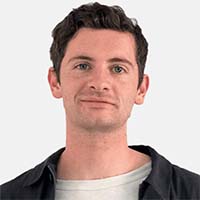 Nathan HigginsMonash University Nathan Higgins is a PhD student at the Turner Institute for Brain and Mental Health at Monash University in Australia. His work focuses on the responsible research and innovation of neurotechnologies, with a specific emphasis on ethical issues related to post-trial access to implantable neural devices. Nathan is currently employed full-time as a research assistant at the Monash Bioethics Centre, where he is a member of a core team engaged in a Wellcome Trust-funded horizon scan of bioethical issues in anxiety, depression, and psychosis research. He completed his undergraduate and honours degrees at the University of Melbourne, majoring in Neuroscience. 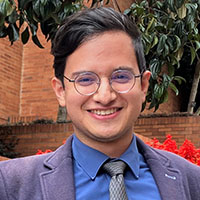 Diego BorbónUniversidad Externado de Colombia Diego Borbón. Researcher-Professor at the Center for Studies on Genetics and Law and the Research Group on Biological Science and Law - Universidad Externado de Colombia. Specialist and M.Sc. in Legal and Forensic Psychology, advancing a Master's and a Ph.D. in Philosophy of Science, with a thesis on free will and penal abolitionism. Co-Founder of the Observatory of Neurolaw and Criminology. Honorary Member of the Colombian Association of Criminology. Member of the Mexican Association of Neuroethics. Certified in the Medical Neuroscience Course from Duke University School of Medicine. Diplomas in Neurocriminology, Crime Theory, Evidence Law, Criminal Litigation Techniques, and Peacebuilding. Research areas: free will, criminology, and neurorights. 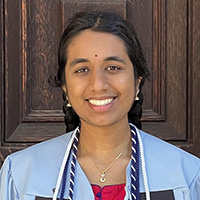 Chinmayi BalusuColumbia University Chinmayi Balusu is an MPH student pursuing neuro-epidemiology at Columbia University. Earlier, she graduated from Columbia with a BA in Medical Humanities. She focuses on stroke, brain injury, global health, and cross-cultural neuroethics research as well as youth science communication. Additionally, Chinmayi is the founder and CEO of Simply Neuroscience, a global non-profit organization expanding early and interdisciplinary access to neuroscience for students. 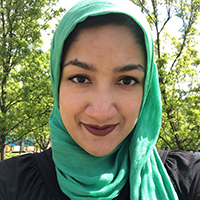 Juhi FarooquiCarnegie Mellon University Juhi Farooqui is a graduate student in Neural Computation at the Neuroscience Institute at Carnegie Mellon University. Her research, in the University of Pittsburgh's Rehab Neural Engineering Labs, focuses on computational modeling of the spinal cord and dorsal root ganglion for somatosensory neuroprosthetic applications. She is broadly interested in neurotechnology and its impacts on society, and works on organically engaging neural engineers with neuroethics. She was previously a post-baccalaureate fellow at the Center for Neurotechnology at the University of Washington. 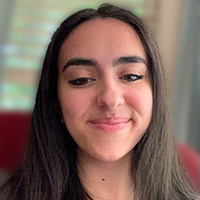 Erin MorrowUniversity of California, Los Angeles Erin Morrow is a PhD student in cognitive psychology at UCLA. Her research focuses on how emotion colors the content and structure of episodic memory. This work motivates her interest in public policy surrounding neuroethical themes, including memory modification, patient perspectives in disorders of memory and emotion, and equity in neuroscience more broadly. Erin is a former INS communications intern, and has worked for the American Journal of Bioethics Neuroscience and Neuroethics Blog.  Cohen Marcus Lionel BrownUniversity of Wollongong Cohen is a Sessional Academic and PhD Candidate in Applied Philosophy at the University of Wollongong in Greater Sydney, Australia. He teaches ethics and bioethics, and his research focuses on questions in neuroethics, moral psychology, aggression studies, and cognitive enhancement. He is also a judge and moderator for the International Ethics Olympiad and serves on the Australasian Association of Philosophy Postgraduate Committee. (LinkedIn) 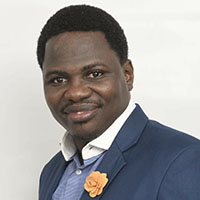 Oluyinka Abiodun OyenijiDe Montfort University Oluyinka (Olu) Oyeniji is a PhD Student within WP9 of the HBP in the Center for Computing and Social Responsibility at De Montfort University in Leicester, UK. His research is focused on 'framing neuroethics and cultural influences.' He has a background in law and ethics of emerging technologies, and is optimistic that the global nature of neuroscience research may extend beyond boundaries, guaranteeing the inclusion of peoples' and identifying with peculiar cultural identities. 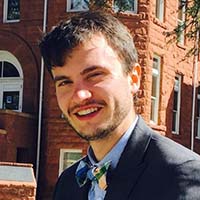 Ian StevensOregon Health & Science University / Harvard Medical School Center for Bioethics Ian is currently earning a Master of Science in Bioethics through HMS's Center for Bioethics, while working as a Research Assistant in OHSU's Neurological Surgery Department. Prior to this he obtained his MA from the University of Tasmania where he investigated the global regulatory policies of deep brain stimulation. He completed his undergraduate education at Northern Arizona University, earning dual degrees (BA/BS) in Philosophy/Biomedical Sciences. 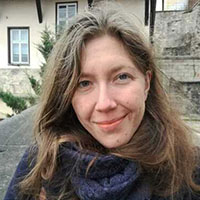 Katharina PetersUniversity of Tübingen / University of Potsdam Katharina Peters has a background in biochemistry, psychology, neuroscience and medicine. She is a member of the research group Ethics of Genome Editing at the Institute for the Ethics and History of Medicine, where she has been pursuing doctoral research in medical ethics since 2020 with a dissertation project on ethical challenges of translational research. In addition, Katharina works at the Junior Professorship for Medical Ethics at the University of Potsdam. Aside from research ethics, her research interests include neuroethics and the ethics of (bio)technologies, particularly genome editing.  Elisabeth K. WebbMcLean Hospital / Harvard Medical School Dr. Kate Webb is a postdoctoral fellow at McLean Hospital/Harvard Medical School under the mentorship of Drs. Kerry Ressler and Nathaniel Harnett. She leverages neuroimaging techniques to identify potential biomarkers associated with risk of developing posttraumatic symptoms or resilience in the aftermath of trauma. Not all trauma exposed individuals go on to develop PTSD, and her work focuses on how sociopolitical contexts and individual factors interact to influence mental health outcomes. Throughout her training, Dr. Webb has engaged with the ethical, cultural, and societal implications of her work. Highlights include participating in the INS essay contest, writing for the Emory Neuroethics blog, and publishing in Nature Neuroscience on racial biases in human neuroscience methods. Faculty Mentor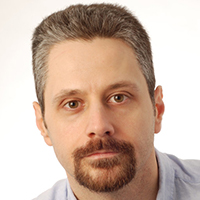 Veljko DubljevićNorth Carolina State University Veljko Dubljević, PhD, DPhil, University Faculty Scholar and Associate Professor at NC State University, leads the NeuroComputational Ethics Research Group. He is the Editor in Chief of American Journal of Bioethics - Neuroscience, series co-editor for "Advances in Neuroethics," and serves on the Board of Directors of the International Neuroethics Society. He is a prolific author in Neuroethics and Ethics of AI, having published over 90 peer-reviewed articles, and four books. Former Student/Postdoc Representatives
|
